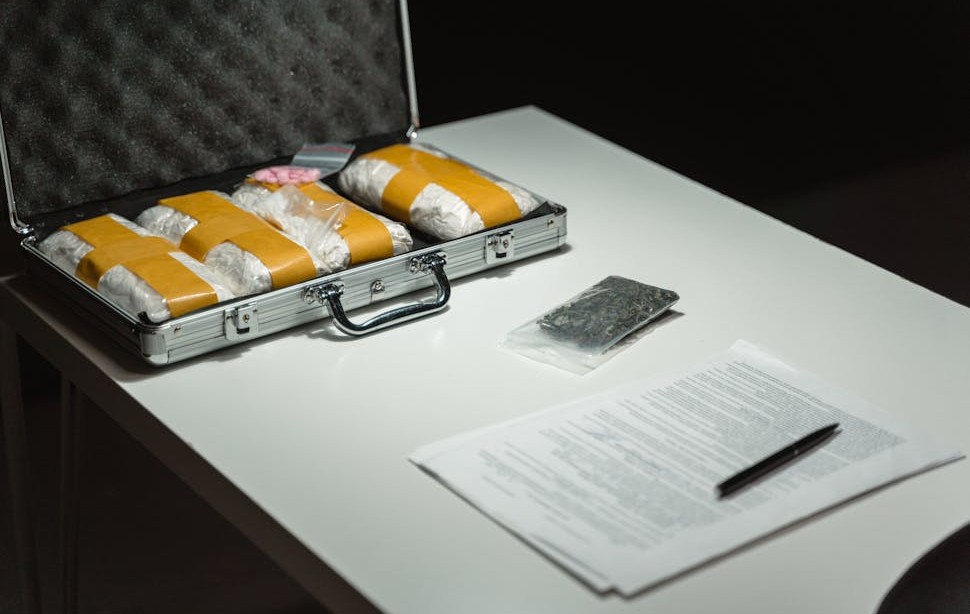Types of Drug Charges & Their Penalties in North Carolina

If you’re facing drug charges in North Carolina, you’re probably feeling a mix of fear, anxiety, and uncertainty about your future. These charges carry serious consequences that can impact your freedom and your entire way of life.
As experienced criminal defense attorneys, we’ve helped countless clients defend against drug crimes. To help you understand what you can expect as your case moves forward, we’re explaining the different types of charges and potential penalties.
Misdemeanor Drug Charges in North Carolina
Misdemeanor drug charges in North Carolina are less severe than felony charges but can still result in significant consequences. Two common types of misdemeanor drug charges are:
Marijuana Possession
While many states have legalized or decriminalized marijuana in recent years, it’s still illegal in North Carolina. Possessing up to 0.5 ounces of marijuana is a Class 3 misdemeanor, punishable by a fine of up to $200. But possessing larger amounts or selling marijuana can result in felony charges with much more serious consequences.
If you’re facing marijuana charges in North Carolina, don’t underestimate the potential impact on your future. A conviction can make it harder to find a job, secure housing, or pursue higher education. Our team has helped many clients fight marijuana charges and protect their rights, and we’re here to help you, too.
Possession of Drug Paraphernalia
In addition to drug possession and distribution charges, you can also face charges for possessing drug paraphernalia in North Carolina. This includes items like pipes, bongs, syringes, or anything else used to ingest, prepare, or store illegal drugs.
Under N.C.G.S. § 90-113.22, possession of drug paraphernalia is a Class 1 misdemeanor, punishable by up to 120 days in jail and a fine. But these charges are often added onto more serious drug crimes, increasing the potential penalties.
Felony Drug Charges in North Carolina
Felony drug charges are more serious than misdemeanors and carry harsher penalties. Some common felony drug charges in North Carolina include:
Possession of Controlled Substances
In North Carolina, it’s illegal to possess any amount of a controlled substance without a valid prescription. This includes everything from marijuana and cocaine to prescription drugs like OxyContin and Xanax. The severity of the charge depends on the type and amount of drug involved.
For example, possession of cocaine or heroin is a Class I felony under N.C.G.S. § 90-95(d)(2), with sentences ranging from 3 to 12 months in prison.
It’s important to note that you don’t have to be caught physically holding the drugs to face possession charges. If the police find drugs in your car, your home, or any other place under your control, you can be charged with constructive possession.
Possession with Intent to Sell or Deliver
If you’re caught with a large quantity of drugs or items associated with drug dealing (like scales, baggies, or large amounts of cash), you may face charges of possession with intent to sell or distribute. These charges are much more serious than simple possession, with longer prison sentences and higher fines.
Under N.C.G.S. § 90-95(a)(1), possession with intent to sell or deliver cocaine is a Class G felony, punishable by 8 to 31 months in prison. Intent to sell heroin is a Class F felony, with sentences ranging from 10 to 41 months. And if you’re accused of trafficking drugs across state lines, you could face federal charges with mandatory minimum sentences.
Drug Manufacturing and Cultivation
Manufacturing or cultivating illegal drugs is a serious felony offense in North Carolina. These charges can apply to a wide range of activities, from operating a meth lab to growing marijuana plants. The penalties are severe, with lengthy prison sentences and steep fines.
For example, manufacturing methamphetamine is a Class C felony under N.C.G.S. § 90-95(b)(1a), with sentences ranging from 44 to 182 months in prison. Growing marijuana is also a felony, with penalties based on the number of plants involved – growing 10 pounds or more is a Class H felony under N.C.G.S. § 90-95(h)(1d).
Drug Trafficking
Drug trafficking charges are more severe than possession with intent to sell charges and are based on the amount of drugs involved (N.C.G.S. § 90-95(h)). For example, trafficking 28 grams or more of cocaine is a Class G felony, punishable by 35 to 51 months in prison and a fine of $50,000. Federal drug trafficking laws also carry harsh penalties, including mandatory minimum sentences for certain drug amounts.
Drug Conspiracy and RICO Charges
In some cases, drug charges may be accompanied by conspiracy or Racketeer Influenced and Corrupt Organizations (RICO) charges.
A drug conspiracy charge alleges that you agreed with one or more people to commit a drug crime, even if you did not actually commit the crime yourself (N.C.G.S. § 90-98). Conspiracy charges can result in penalties similar to those for the underlying drug offense.
RICO charges are often used in cases involving high-level drug trafficking organizations. Under RICO laws, members of a drug organization can face charges for crimes committed by other group members. RICO convictions can lead to lengthy prison sentences and asset forfeiture.
Defending Against North Carolina Drug Charges
No matter how serious the allegations against you may seem, you have rights and options for defending yourself.
At McMinn, Logan & Gray PLLC, we firmly believe that every person accused of a crime deserves a strong and effective defense. Our experienced criminal defense attorneys will protect your rights, investigate the circumstances of your case, and explore every available option for achieving the best possible outcome.
Remember, being charged with a crime does not mean you will be convicted. There are many potential defense strategies that can be used to fight drug charges, such as:
- Challenging the legality of the search and seizure that led to the discovery of the drugs
- Arguing that the drugs did not belong to you or that you did not knowingly possess them
- Negotiating with prosecutors for reduced charges or alternative sentencing options, such as drug court or rehab programs
- Presenting evidence of entrapment, coercion, or other mitigating factors
At McMinn, Logan & Gray PLLC, we have a deep understanding of North Carolina’s drug laws and a proven track record of success in defending clients against even the most serious charges.
So, if you or a loved one is facing drug charges in North Carolina, don’t wait to seek legal help. Contact us today to schedule a free consultation with our team.
